News Archive
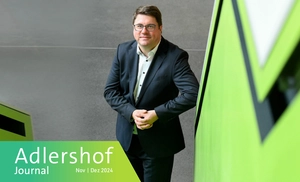
The molecule sleuth
Carsten Engelhard monitors the reliability of chemical analyses:
Searching for a needle in a haystack. Is that the appropriate metaphor? It could make it easier for a layperson to understand how Carsten Engelhard spends his workdays. In both research and teaching, his home has been…
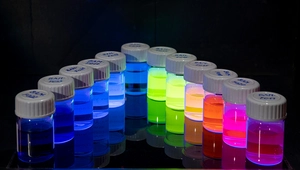
BAM develops new standards for the surface analysis of nanoparticles
New EU project launched for greater security in the use of nanoparticles:
In a new EU project, the Bundesanstalt für Materialforschung und -prüfung (BAM) is developing standardized measurement methods for investigating the surfaces of nanoparticles. The goal is to further improve the…
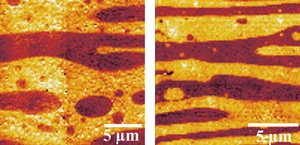
New procedure for better thermoplastics
Research team at BESSY II was able to increase the performance of environmentally friendly materials:
Bio-based thermoplastics are produced from renewable organic materials and can be recycled after use. Their resilience can be improved by blending bio-based thermoplastics with other thermoplastics. However, the…

No youth movement of its own
Essay by author Lea Streisand on the concept of generation:
Generational shift. I had to google the word to begin with, boomer in spirit that I am.1 At least, I didn’t look it up in a dictionary because that definitely would’ve exposed me as geriatric. I’ve never been…
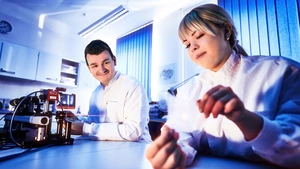
New Educational Initiative for the German Chip Industry
Ferdinand-Braun-Institut will coordinate a national academy for microelectronics and microsystem technology:
Securing skilled workers for the chip industry – with this goal in mind, the nationwide flagship project “Skilled workers for microelectronics: skills4chips” funded by the Federal Ministry of Education and Research…

Explanation found for encrusting of the Martian soil
Temperature measurements of the HP³ Mars mole have provided new insights:
Mole, the Martian mole: for four years it had a small but highly regarded 'career' in planetary research. The experiment, unprecedented in the field, was named after the recognisable tunnel-digging mammal, but its…
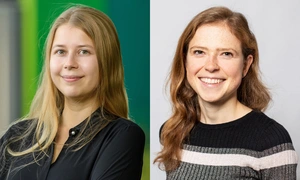
Forschungsverbund Berlin honours young female scientists with the Marthe Vogt Award
The awardees are bioinformatician Dr. Sara Hetzel and mathematician Dr. Alexandra Quitmann:
In 2024, the Forschungsverbund Berlin e. V. (FVB) will honor two early career researchers with the Marthe Vogt Award, endowed with €3,000. Both Dr. Sara Hetzel and Dr. Alexandra Quitmann have presented outstanding…
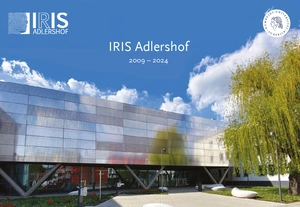
Research institute IRIS Adlershof ended
After 15 years, the funding phases for the “Integrative Research Institute for the Sciences” at HU Berlin have been completed:
Since its founding in 2009, the Integrative Research Institute for the Sciences of Humboldt University in Berlin – IRIS Adlershof – looks back on 15 years of successful work. IRIS Adlershof has developed into an…
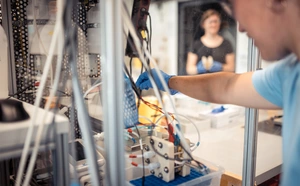
Hydrogen: Breakthrough in alkaline membrane electrolysers
Research team developed a highly efficient and very inexpensive AEM electrolyser:
A team from the Technical University of Berlin, HZB, IMTEK (University of Freiburg) and Siemens Energy has developed a highly efficient alkaline membrane electrolyser that approaches the performance of established PEM…
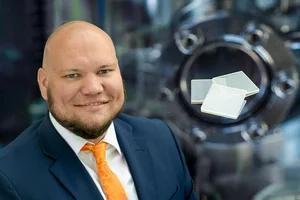
BMBF funds IKZ project for efficient power electronics with around 2 million euros
“All-GO-HEMT” project aims to make a significant contribution to sustainable energy generation:
Led by Dr. Andreas Fiedler, the “All-GO-HEMT” project aims to develop modulation-doped β-(AlₓGa₁₋ₓ)₂O₃/Ga₂O₃ heterostructures that exhibit high electron mobility. With total project funding of almost 2 million euros,…

HU Geographer studies investments in environmental and biodiversity conservation in South America
Cross-national analysis shows how funds can be used more efficiently to protect tropical forests:
Scientific studies on the protection of tropical rainforests and dry forests show three trends over the last few decades: since the 1990s, the forest cover has shrunk by an estimated 65,000 to 95,000 km2. At the same…

International alliance for reproducibility of perovskite solar cells
TEAM PV to drive further development and comparability of low-cost solar modules:
Ten teams at Helmholtz-Zentrum Berlin are building a long-term international alliance to converge practices and develop reproducibility and comparability in perovskite materials. The TEAM PV project is funded by the…
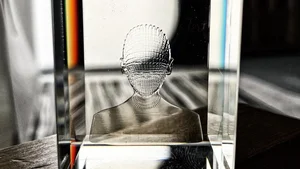
Swarovski and xolo develop a new method for crystal glass manufacturing
The aim is to directly print crystal glass components using Xolography:
The Austrian-based company Swarovski, leader in crystal and jewelry manufacturing, has partnered with Adlershof start-up xolo, a pioneer in volumetric 3D printing technology. The project aims to directly print crystal…
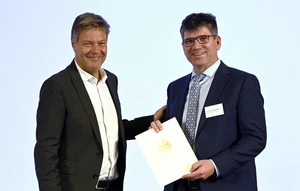
Prof. Dr. Bernd Rech appointed to the Energy Research Advisory Council
HZB‘s Scientific Director will advise the Federal Ministry of Economics and Climate Action (BMWK) on the direction of its energy research policy:
The Federal Minister of Economics Affairs and Climate Action, Robert Habeck, has appointed an advisory board to advise the Federal Ministry of Economics and Climate Action (BMWK) on the energy research programme.…
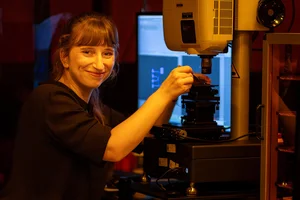
Complex research explained understandable
Dr. Lisa-Marie Kern receives the Klaus Tschira Foundation’s KlarText Award for Science Communication:
Dr. Lisa-Marie Kern (29), currently a postdoctoral fellow at the Max Born Institute for Nonlinear Optics and Short Pulse Spectroscopy, was awarded the Klaus Tschira Foundation’s KlarText Award for Science…
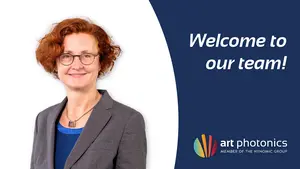
Leadership Update at art photonics GmbH
Dr. Stefanie Foerster is the new Managing Director of the company:
art photonics GmbH is pleased to announce that Dr. Stefanie Foerster has been appointed as the new CEO! Dr. Foerster brings extensive experience in general management, business development, and sales across diverse…
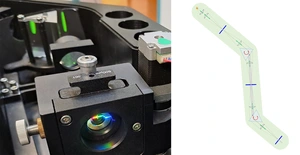
HZB patent for semiconductor characterisation goes into serial production
Newly developed monochromator determines optoelectronic and optical properties of semiconductor materials:
An HZB team has developed together with Freiberg Instruments an innovative monochromator that is now being produced and marketed. The device makes it possible to quickly and continuously measure the optoelectronic…
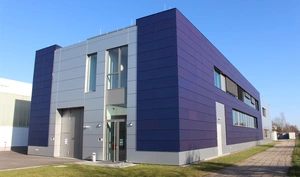
HZB's Photovoltaic living lab reaches the 100 Megawatt-hour mark
The solar facades of the building in Adlershof provide insights into building-integrated photovoltaics:
About three years ago, the living laboratory at HZB went into operation. Since then, the photovoltaic facade has been generating electricity from sunlight. On September 27, 2024, it reached the milestone of 100…
![[Translate to English:] WISTA-Geschäftsführer Roland Sillmann auf der "40th IASP World Conference, Kenia 2024"](/fileadmin/_processed_/8/b/csm_wista-roland-sillman-iasp_f9a08e00c8.webp)
The raise of Remote Work – is the importance of STPs & AOIs overestimated today?
WISTA Managing Director Roland Sillmann at the annual conference of the IASP - International Association of Science Parks in Nairobi :
EXECUTIVE SUMMARY From running one of Europe's leading STPs, we know that physical proximity fosters entrepreneurship and innovation and transfers scientific knowledge into products that help tackle the grand…
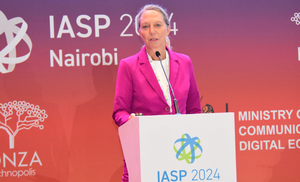
Future of work: Life-long-learning, values and purpose
WISTA Head of Human Resources Bessie Fischer-Bohn spoke at the IASP conference in Nairobi on the challenges of the “New World of Work”:
Executive Summary The future of work is undergoing significant changes, marked by global challenges and transformative megatrends. We define three main challenges: shifting values, demographic transformation, rapid…